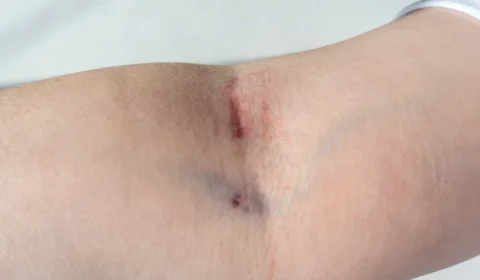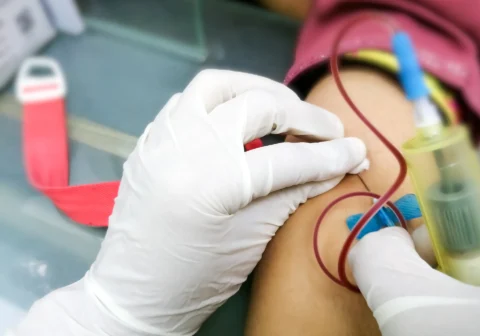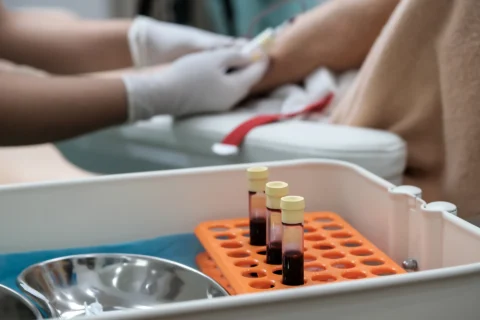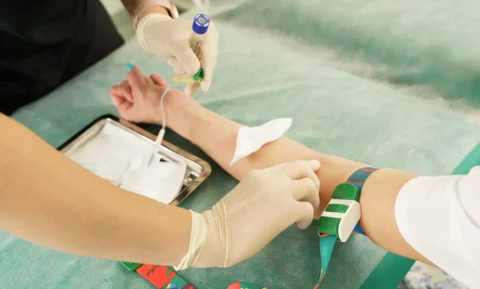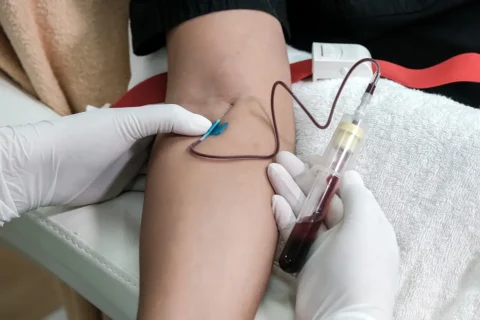Aesthetic medicine is one of the most lucrative career paths for healthcare professionals. If you’re a doctor or nurse looking to expand your knowledge on aesthetics, you’ll need to take courses. The licensing and educational requirements for aesthetic medical professionals vary per state, but most will require you to have 40 hours or more of training for aesthetics.
So what training is necessary to practice aesthetics? In many states, you’ll need to be a healthcare provider with a nursing or medical license. However, some areas allow you to obtain a license to administer cosmetic procedures after you finish a course. Courses can range from beginner-friendly to more advanced refreshers.
Training Education for Aesthetic Practice
Training education opportunities for aspiring aestheticians include courses, conferences, and reference texts. Courses will cover anatomy basics, laser physics, health protocols, and the procedures for aesthetic treatments. To ensure the best learning experience, you should look for a course supervised by licensed aesthetic practitioners.
Courses and Training Centers
Courses are the most common way to get training for aesthetics. These courses include classroom lessons, live demonstrations, and assessments to help you learn about specific treatments. If you want to learn about different procedures, you may have to take multiple courses. However, some training centers bundle together different treatments in one course.
The following cosmetic therapies usually appear in standalone or bundled courses:
- Cosmetic threads
- Dermal fillers
- Intense pulsed light (IPL) therapy
- Laser therapies (hair reduction, resurfacing)
- Radiofrequency
Besides these treatments, you can also expect to learn the following concepts:
- Business strategies for aesthetic centers
- Health and safety protocols
- Patients’ needs assessment
- Skin science (laser physics, anatomy, chemistry)
Some schools and online platforms have started to offer aesthetic medicine training for interested parties. These are also facilitated by licensed professionals and cover mostly the same topics. Many of these courses have a hybrid setup, with combined online lectures and in-person demonstrations. Additionally, most of the theoretical foundations are still primarily self-study components.
In the case of schools, course offerings may only be available a few times a year due to instructors’ schedules. Online shops may have courses up on sale more frequently, although enrollment might be restricted if a scheduled in-person assessment has passed. It’s also common for these courses to have video conferencing elements where you can interact with instructors and other learners.
Required Medical Qualifications
Many of these training courses require you to be one of the following:
- Doctor of dentistry
- Doctor of osteopathy
- Medical doctor
- Physician’s assistant
- Registered nurse
The specific requirements vary per state. In some areas, dentists have to undergo separate training courses from medical or osteopathic doctors. There are also areas where nursing assistants and cosmetologists can take courses, although their required training hours may be more than those of other professionals.
If you’re interested in getting more complex aesthetics training, you can take a nursing degree through a university or community college. You have the option of a 4-year bachelor’s degree or a 2-year associate’s degree. After you finish studying, you’d have to take an exam called the National Council Licensure Examination for Registered Nurses (NCLEX-RN). If you pass the exam, you’ll receive a nursing license.
If you want to focus on injectable treatments, you can gain further knowledge by applying at a medical spa. Medical spas are wellness clinics handled by doctors or nurses. You’ll get to work with plastic surgeons, dermatologists, and cosmetic nurses who deal with injectables. Most med spas offer training lessons to maintain a high quality of service.
Other Resources
If you’ve already earned a degree or finished a course, you can expand your knowledge by reading other materials. There are many manuals that delve into laser manipulation or cosmetic injections. For instance, publishers have released Botox and Ultherapy guidebooks for nurse practitioners. But note that these won’t replace the learning you can get from live demonstrations.
Licensing and Regulatory Approvals
There are no government agencies that oversee training centers. Likewise, laws on practicing technicians vary per state. It’s important to look into your institution’s credentials before you enroll. Make sure that all instructors are licensed professionals, and that the facility has the necessary building permits.
All laser equipment used during training will likely be a class IIIb or a class IV medical device. These classifications are based on the Food and Drug Administration (FDA)’s standards. Since these indicate a high risk for injury, you should only handle them with the help of a supervising physician.
State Laws and Licensing for Centers
There are some states that are strict about allowing training centers to operate. In Arizona, only state-approved centers can hold courses that have creditable hours. You can take multiple courses, but you should have a cumulative 40 hours of credited lectures on skin science, safety protocols, and patient care.
Arizona also requires technicians to undergo 24 hours of supervised hands-on laser therapy. An additional 24 hours of demonstrations for other skin-based operations is also required. Arizona’s laws have become the blueprint for training laws across the country, with Texas having a similar requirement. Texan aesthetic training centers should also be state-approved, and aspiring estheticians should have performed 100 skin-based treatments before getting licensed.
In some states, the local government goes through all course offerings and checks their accuracy. Your state may have a cosmetology board that approves the following topics:
- Laser equipment manipulation
- Skin science
- Machine maintenance
- Laser safety and aftercare
You can check the training center’s website if they’re accredited by the local government. It’s also a good idea to contact them through their hotline or email for any questions. If you’re looking into a long-term esthetician career, you can ask about the transferability of the course credit to other states.
Required Certifications for Practitioners
Besides a medical-related degree, there aren’t any specific certifications required for most aesthetic practitioners. However, your employer may ask you to take continued medical education (CME) courses. CME credits can be obtained through short-term courses.
Employees that get CME courses also help the establishment prove their legitimacy. In New York, aesthetic establishments should ensure that all laser-operating staff have adequate training. There are also other states that require an additional certification to prove that you underwent additional training. You can ask your training center if they provide a certificate at the end of your course.
Some doctors set up medical spas that only have medical professionals on the team. These spas will have a certificate displayed at the front desk to show potential clients that their staff members are all licensed.
Find Your Medical Tools and Supplies at FACE Med Store
Training to be an esthetician is a huge step towards more career opportunities. Your training center should help you gain more knowledge about various aesthetic treatments, thanks to quality instructors and learning materials. By the end of your training, you should know how to properly deliver most cosmetic treatments.
FACE Med Store offers high-quality courses that cover a variety of skin care concepts. We’ll help you learn about laser hair reduction, IV therapy, tattoo removal, Surgitron equipment, skin science, and more. To browse our course offerings, you may visit our online training course collection. You can also send us an email at info@facemedstore.com.
